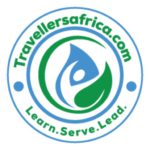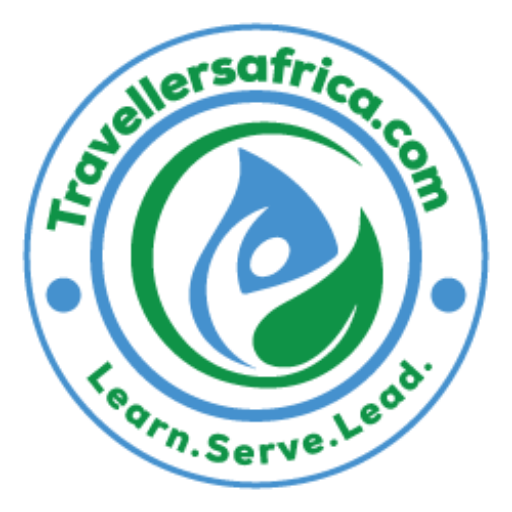Medical Volunteer Abroad.
Facts About This Program
- Iringa and Morogoro
- From 3 Months
- Working Days in a Week 5-6 Days.
- Hostel or Home Stays.
- $ 1500 - 2800
Healthcare for Pre-Med, Pre-nursing, Medical, nursing and pharmacy students and professionals.
With greater efforts to improve health service delivery, especially the health of women and children, an emphasis is placed on improving the quality of reproductive health services and on preventing and reducing the impact of widespread communicable diseases, bridging gaps that prevent efficient and effective delivery of health services, and fostering partnerships that lead to improved health in Africa. Government and non-governmental organizations run a number of different health facilities, hospitals, maternity clinics, children’s hospitals, HIV/AIDS wards, and alternative-medicine clinics in many cities and small rural villages.
In the health project, volunteers support the local doctors and nurses. Work ranges from observational to basic assistance, depending on level of knowledge, experience, and skill. As a volunteer you can work with a health center within a local community by observing and assisting with a local medical practice. Access to basic healthcare is often one of the most challenging issues that low-income and neglected populations face. Community level intervention and local health clinics offer services to local families at minimal or no cost. With the introduction of a medical insurance in Tanzania, attendance to healthcare facilities has skyrocketed making the support of volunteers indispensible. Working on health projects offers a wonderful opportunity for volunteers to become familiar with the challenges and health issues of developing countries.
Health care professionals, students, and non professionals are needed at the small village clinics. The working conditions may not be what you are used to. The equipment is quite basic and the amount and variety of medicines are very limited. Volunteers record attendance, patient history, temperatures, perform patient examinations, provide pre-natal care, assist in deliveries, offer education to clinic patients and community groups on ways of preventing diseases affecting them most. Examples might be how to treat an unsafe water before use, how to prepare a balanced and healthy meal, the practice of hygiene, etc. If you are a medical doctor, nurse medical student, nursing student or pre-med student, your assistance is highly needed.
Under the healthcare program, volunteers are stationed at local health centers. The health center might be manned by a qualified and trained doctor, medical assistant or nurse with the support of one or two ward assistants. Surgeries and deliveries are done at all these centers but major surgeries are limited to the listed hospitals.
Volunteer's responsibilities
- Taking care of patients reporting for out-patient care or on admission
- Changing bandages and monitoring recovery
- Checking blood pressure
- Weighing babies
- Distributing foods
- Helping with first aid treatment
- Observing the expert in diagnosing a patient
- Performing minor, major or specialist surgeries, etc.
Program Objectives
- To compliment the effort of stakeholders to send proper improved basic healthcare to poor in their own communities as a policy of mitigating poverty.
- To offer health care and education as the basis for improving the livelihood of the underprivileged communities
- To offer staff support to the insufficient staffs of the rural healthcare.
- To offer traditional healthcare providers an improvement in their health delivery to efficiently support the modern ones.
- To offer volunteers an opportunity to discover practical and innovative healthcare practice and first aid application with little or no resources.
- To create a bond between the volunteer and the local community or health center so that in the near future, the volunteer can return to assist in a higher capacity when knowledge or resources has grown for the volunteer
- To promote cross cultural understanding.
Who can volunteer?
Medical Doctors, Nurses, Pharmacists, medical and sciences students and pre-med students can volunteer in this program. You can volunteer as a group or an individual. Your service is highly needed. However you should understand that you will not do anything that may stigmatize any of the people you meet in the course of your work. You need to have an open mind and a willing heart.
Program Duration and Dates
Program is opened to volunteers all year round. Volunteers can spend from two weeks to six months on the program. A night in the capital upon arrival (sometimes due to problems like your luggage being left behind by the airline, staying in Arusha may be go beyond a day), orientation by us to offer volunteers education on the culture, traditions and sensitivities of the people in the community of work, basic local language syllabus and how to go about things in the community in terms of food, water, socialization, etc. The pre-departure information will be enough an orientation for participants who intend to spend a month or less on a placement
How will you benefit from volunteering in this program?
- You will discover more about yourself which will definitely help you in making many vital decisions
- You will experience a true and pure culture of a different kind in this same world
- You will enhance on your knowledge on life, society, politics and problem solving skills and approach.
- You will learn and acquire innovative and new skills of health delivery and first aid.
- You will be proud of yourself for doing something very positive in your own means to change the life of someone.
- It shall be such a great adventure and break helping you know what you are capable of in strenuous or disaster conditions
- Another opportunity to find a lifetime friend very far away from home and with a different perspective of life which offer us some good at times, especially when we want somebody to speak to about problems and ideas for solutions.
What kind of skills you need to go this project?
Initiative, enthusiasm and patience will be essential characteristics for any volunteer embarking on this project. You will need to understand the key aims of your project as a focal point for the broader community and be aware of the long term goals in order to appreciate the hands on work that this project will require.
Any specific skills that you can contribute, such as teaching experience, environmental issues, community health advice, counseling and sports coaching will be appreciated. Volunteers will need to be pro-active in instigating activities that they particularly want to get up and running as supervision and leadership may be fairly minimal.
Volunteers also get involved in extracurricular activities such as sports, drama & music. Volunteers have shared IT skills with the teachers, held seminars on topics including: health issues and reproductive matters alternatives to corporal punishment (which is formally banned but used at times), business skills, and public speaking and study skills.
Address:
66 Broklyn Street, New York
Email:
mail@example.com
Open Hours:
Mon-Sat: 9am - 6pm

